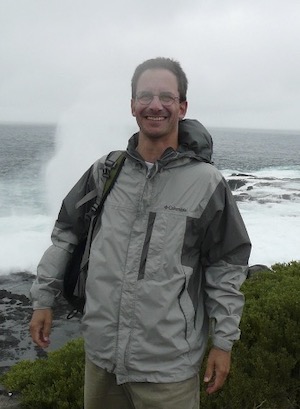By Julia Albertson
Out in Harvard Square in the New England winter weather with a clipboard in hand, John Rumpler was collecting signatures to put a question on the next Massachusetts ballot. The ballot question, formulated by the MassPublic Interest Research Group (MassPIRG), would require the state government to identify and clean hazardous waste sites if there was enough public support. After the election in 1986, the question passed with overwhelming support. “Making change is not always about using your intellectual capacity,” said Rumpler. “You have to just roll up your sleeves and do the grunt work too.”
Rumpler’s efforts behind the scenes with MassPIRG became the foundation for his work with environmental advocacy, but he credits his lifelong pursuit of activism to his upbringing. Inspired by his parents and shaped by the values they instilled in him, he attended Tufts University to study history and philosophy and was inducted into Phi Beta Kappa by the Delta of Massachusetts chapter there. To Rumpler, the significance of his membership is not in the title or prestige, but in what ΦBK represents. “It’s a reminder that hard work and creativity and intelligence can lead to valuable things,” he said. “When I think about my membership in Phi Beta Kappa, I try to remember to bring my best self to work every day.” Now senior director of Environment America’s Clean Water for America Campaign and their senior attorney, Rumpler has taken on projects and campaigns targeting practices that pollute water such as fracking and factory farming.
After his undergraduate studies, he worked on various campaigns for five years while ruminating the next steps to enhance his activism. With a knack for debating and oral arguments, he decided that law school would be his next endeavor. “It was more like I decided I was going to be an environmental advocate,” Rumpler recalled, “and the law is going to be one more tool in my toolbox to be able to make the changes that need to be made.” In 1996 Rumpler graduated from Northeastern University Law School, allowing him to argue in court and represent clients. One of his first projects out of law school was a pro-bono case that brought him back into environmental activism. Fighting against a trash transfer station in Lowell, Massachusetts, Rumpler combined his experience as an activist with the force of law to represent the community at local board of health meetings. His exemplary work eventually landed him a position as a staff lawyer for the organization Alternatives for Community and Environment (ACE) operating out of the Roxberry neighborhood. ACE was running a network of lawyers and technical consultants to represent community groups. Rumpler quickly jumped at the opportunity to join the network. “This is fantastic,” he recalled thinking. “This is an opportunity for me to get back into some environmental issues.” Utilizing his pre-law school advocacy skills with the tools acquired in law school, he filed motions, cross examined witnesses and filed briefings urging the local board of health to reject the transfer station.
In his position with Environment America’s clean water program, Rumpler recently spearheaded the Get the Lead Out campaign. Working with local school boards as well as municipal, state, and federal governments, the campaign successfully garnered $15 billion from President Biden’s bipartisan infrastructure bill to fund the removal of lead service pipelines polluting the drinking water. “It is an unprecedented amount of money towards this effort,” Rumpler said. The bill also provides $200 million to school boards to replace water fountains and pipes. There are no federal regulations for drinking water in schools, and lead testing is not effective in protecting kids from lead pollution. Funding new fountains was the most direct way to minimize lead in the drinking water. Get the Lead Out is one of many examples of Rumpler’s non-linear path of activism as he continuously emphasizes that there is power in numbers with local engagement, and that a law degree is not needed to make a change in the world.
Julia Albertson is a senior at Temple University pursuing a Bachelor of Arts in environmental studies with a journalism studies minor. She was inducted by Temple University’s Rho of Pennsylvania chapter in May 2021.




